Picture it: a sleek starship gliding through the galaxy, a fearless captain steering the way, and a Vulcan raising his eyebrow higher than any drama could match. You guessed it—Star Trek. It wasn’t just a TV show; it was a revolution waiting to happen.
But here’s the kicker: Star Trek almost didn’t make it. Yep, network executives nearly pulled the plug because they thought it was too intellectual for everyday viewers.
Spoiler alert: they couldn’t have been more wrong.
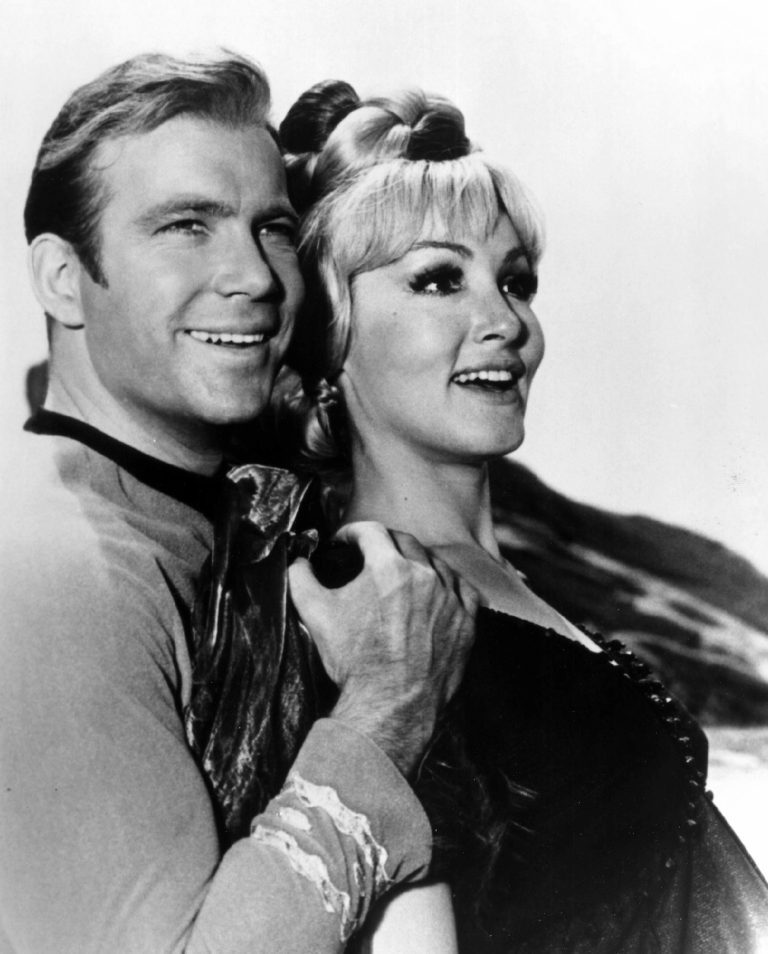
The Birth of a Vision Bigger Than Television
In the swinging 1960s, Gene Roddenberry wasn’t looking to churn out another mindless space adventure. He had a bigger dream. He wanted Star Trek to be a platform for big ideas, a mirror reflecting society’s struggles and hopes. In Roddenberry’s universe, humans—and a few iconic aliens—had figured out how to work together and wrestle with complex moral dilemmas.
Sounds brilliant, right? Well, TV executives at the time weren’t buying it. They wanted gunslingers and slapstick humor, not diplomacy among the stars. Roddenberry’s original pilot was turned down multiple times because they feared audiences wouldn’t “get it.”
They seriously underestimated the dreamers out there.
Video: It never happened – Star Trek TNG/TOS
Too Brainy to Succeed? NBC Thought So
When Star Trek finally launched on NBC in 1966, it wasn’t exactly smooth sailing. The show’s layered dialogues, heavy science themes, and social allegories weren’t what networks usually bet on. NBC worried viewers would find it too complicated to enjoy with their evening popcorn.
After two seasons, low ratings had the network sharpening its cancellation axe. Star Trek was on the brink of becoming just another forgotten show… until something incredible happened.
The Power of Fans: A Movement is Born
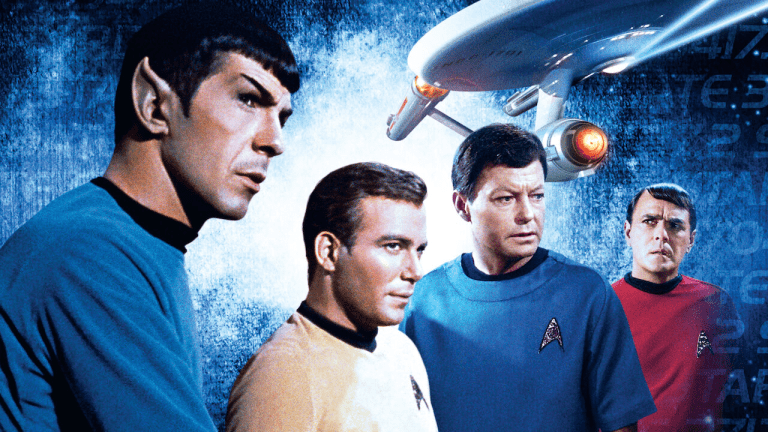
Thousands of handwritten letters flooded NBC’s offices. Students, teachers, scientists, writers—people from all walks of life—begged them to save Star Trek. It was one of the first true fandom uprisings, and it worked.
Thanks to that unprecedented show of loyalty, the series snagged a third season. Seventy-nine episodes in total. It wasn’t a huge run by today’s standards, but it was enough to ignite something much bigger.
Star Trek’s Secret Weapon: Real-World Relevance
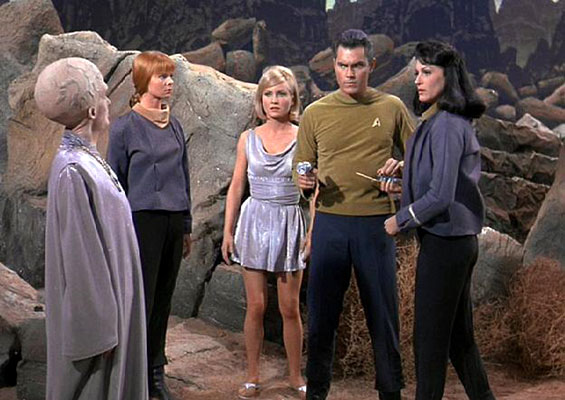
What made Star Trek more than just another sci-fi series? It wasn’t about flashy tech or laser battles (okay, maybe a little). It was about us—our struggles, our hopes, our future.
Through its futuristic lens, the show tackled real-world issues like racism, war, and gender roles. In a time when the world felt divided, Star Trek painted a picture of unity among the stars.
And it wasn’t shy about pushing boundaries. Captain Kirk and Lieutenant Uhura’s kiss in 1968 wasn’t just television history—it was a cultural earthquake.
Then there was Spock—the half-human, half-Vulcan outsider wrestling with identity and logic. Leonard Nimoy turned Spock into a quiet, thoughtful hero for anyone who ever felt like they didn’t belong.
The Franchise That Refused to Fade Away
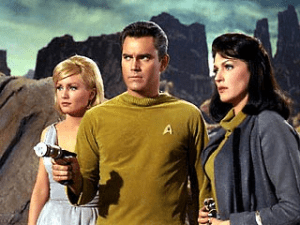
You’d think cancellation would be the end, right? Not for Star Trek. Syndication brought the show back from the brink. Late-night reruns turned it into a cult classic.
From there, the universe exploded:
- Star Trek: The Motion Picture hit theaters in 1979.
- The Next Generation debuted in 1987 and soared even higher.
- Deep Space Nine, Voyager, Enterprise, and new hits like Discovery and Strange New Worlds kept the flame alive.
Each new show expanded the galaxy while staying true to Roddenberry’s vision: exploration, evolution, and hope.
Beyond TV: Star Trek’s Real-World Impact
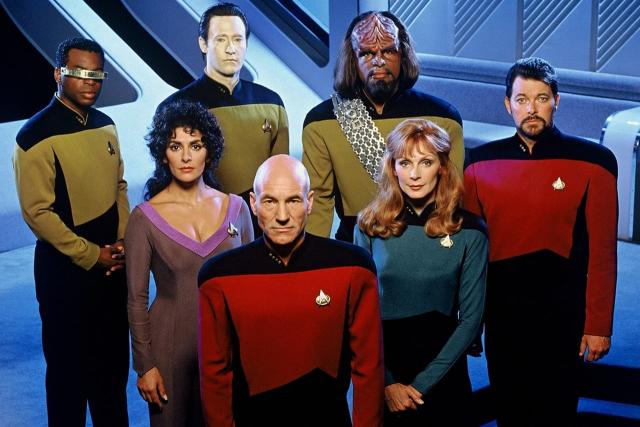
You can thank Star Trek for a lot of today’s tech. Seriously.
- Flip phones? Inspired by Starfleet communicators.
- Tablets? Early props on the Enterprise.
- Voice-activated computers? Hello, Alexa and Siri.
And it wasn’t just gadgets. NASA engineers, tech moguls, and scientists often cite Star Trek as their inspiration for dreaming bigger.
More importantly, Star Trek built a global family—fans who believe peace across planets isn’t just fiction. It’s a goal.
Little-Known Facts That Prove Star Trek’s Power
Video: Does everyone see Uhura in the back here???
Even hardcore Trekkies might not know these jaw-dropping facts:
- Star Trek introduced the first openly Russian character (Chekov) during the height of the Cold War.
- Captain Kirk wasn’t in the original pilot—Jeffrey Hunter played Captain Christopher Pike.
- Martin Luther King Jr. personally convinced Nichelle Nichols (Uhura) to stay on the show because her role was too important.
These aren’t just trivia—they’re proof that Star Trek was making history even when most networks didn’t realize it.
Conclusion: A Universe Conquered by Vision and Hope
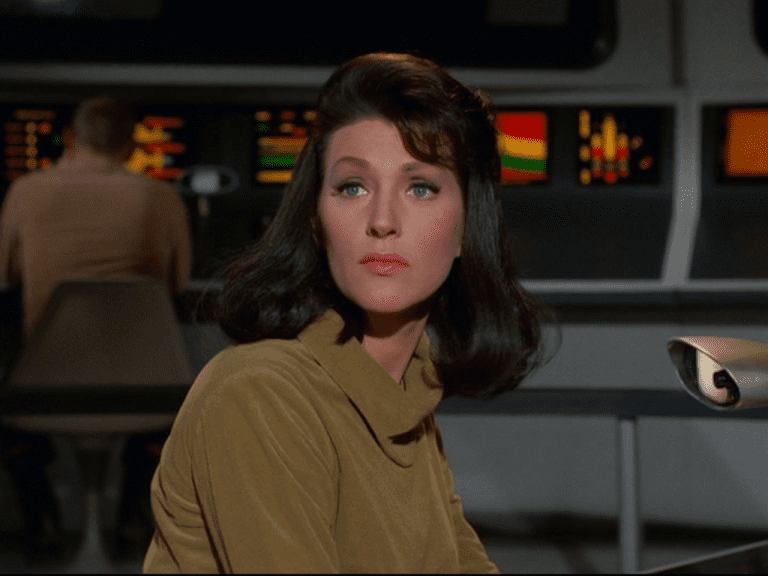
Star Trek didn’t just avoid cancellation; it conquered the world. What began as a “too smart” sci-fi show blossomed into a cultural juggernaut that’s still exploring strange new worlds today.
The franchise taught us that being smart, curious, and inclusive isn’t a weakness—it’s our greatest strength. It challenged us to dream of a future where humanity doesn’t just survive but thrives.
And maybe that’s the real final frontier—not space, but the endless journey of becoming better.
So next time you hear someone say “Live long and prosper,” remember: it’s not just a catchphrase. It’s a challenge to be brave, to be kind, and to keep reaching for the stars.


